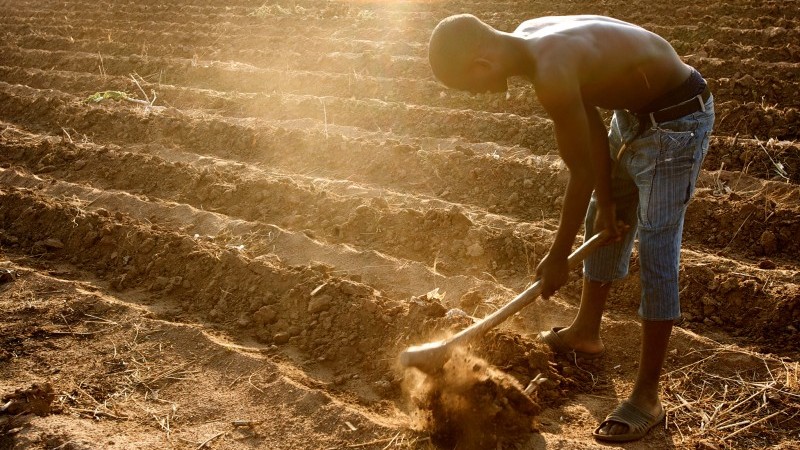African campaigners are promoting digital tools to keep young people involved in farming and prevent migration, delegates heard on the sidelines of climate talks in Bonn, Germany.
Youth unemployment averages 10.8% across sub-Saharan Africa, while nearly seven out of 10 young people earn less than $3.10 a day. Climate change impacts like drought and flooding are making it harder for farmers to get by, with large numbers making a risky journey to seek better opportunities in Europe.
In response to this challenge, the Climate Smart Agriculture Youth Network (CSAYN) is bringing young people together through digital and conventional means to share knowledge about climate-smart agriculture.
According to Amanda Namayi from CSAYN Kenya, the internet has helped the youth form alliances across 28 countries to promote sustainable farming. “This initiative started in Africa but it is now spreading to other parts of the world,” she said.
CSAYN is promoting activities associated with farming such as marketing, accounting and manufacturing to help the youth realise that agriculture can also be done by those with university qualifications.
“The youth is more engaged in social media and they’re into technology, which are the tools they’re using to get involved in farming,” said Catherine Mwangi, a researcher from Kenya.
That includes creating mobile applications to inform farmers about weather patterns and help them make decisions on what to plant and when.
Young people are also using online forums to share experiences and educate one another, Mwangi said. “We need to rethink the way we engage the youth in farming… The online forums have given us an insight into what challenges the youth faces and the solutions.”
Analysis: For Africans, America’s pledge is about more than pollution
The other problem that African youth in agriculture face is a lack of land rights. This, according to the African Union Commission (AUC) advisor in climate change and agriculture, Ayalneh Bogale, is caused by the complexity of land tenure systems in African countries.
“The AUC is helping African governments to come up with policies to make land more accessible to those who want to use it for farming,” he said.
He also encouraged the youth to engage in rehabilitating damaged land, which may be eligible for climate finance.
Climate Home News’ reporting at Cop23 is supported in part by the European Climate Foundation.
